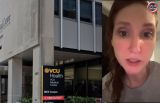The Michael and Susan Dell Foundation has announced a new $50 million investment to develop Dell Medical School at the University of Texas, Austin. This donation will be given in installments to the new medical school, over a period of 10 years.
Dr. Aliya Hussaini, health team leader at Dell Foundation, said that the gift will be used to recruit faculty and purchase necessary technology and equipment. The Dell Medical School is scheduled to start its enrolment process in 2016 with 50 students.
"This gift truly saves lives," UT system chancellor Francisco G. Cigarroa said in a statement. "Investments in medical education, biomedical research, and health care touch all citizens. Nobody has done more for the people of Central Texas than Michael and Susan Dell. Their generosity not only benefits UT, it also lifts up our entire community. "
Cigarroa said that this school will not only benefit the university but also the entire community.
"UT is a world-class university, and the medical school will be able to attract top talent, advance medical research and practices, and improve family health for generations to come," Susan Dell, co-founder and board chair of the Michael & Susan Dell Foundation, said.
The Dell family foundation announced another $10 million commitment to Austin and Travis County community health quality and access programs over the next ten years. These gifts are part of a multi-year, $150 million investment to incorporate full-fledged medical health facilities in Austin. Previously, the foundation donated $90 million to Dell Children's Medical Center of Central Texas, UT Austin's Dell Pediatric Research Institute, UT's Michael & Susan Dell Center for Healthy Living, and the Texas Center for the Prevention and Treatment of Childhood Obesity.
"Between the generosity of the Michael & Susan Dell Foundation and the great citizens of Travis County who voted to transform health care in the community, a powerful public-private partnership has emerged. Austin is the new beneficiary of enhanced health care, and countless economic development opportunities," Gene Powell, Chairman of the UT System Board of Regents said.
UT Austin president Bill Powers said that due to the foundations' earlier contributions, students, researchers and faculty were able to conduct extensive medical research. With additional $50 million, they will be able to provide quality and productive medical care.
Currently, the university management is considering building sites for the medical school, seeking accreditation and state approvals, and approaching medical professionals for faculty and leadership positions.
© 2026 University Herald, All rights reserved. Do not reproduce without permission.








